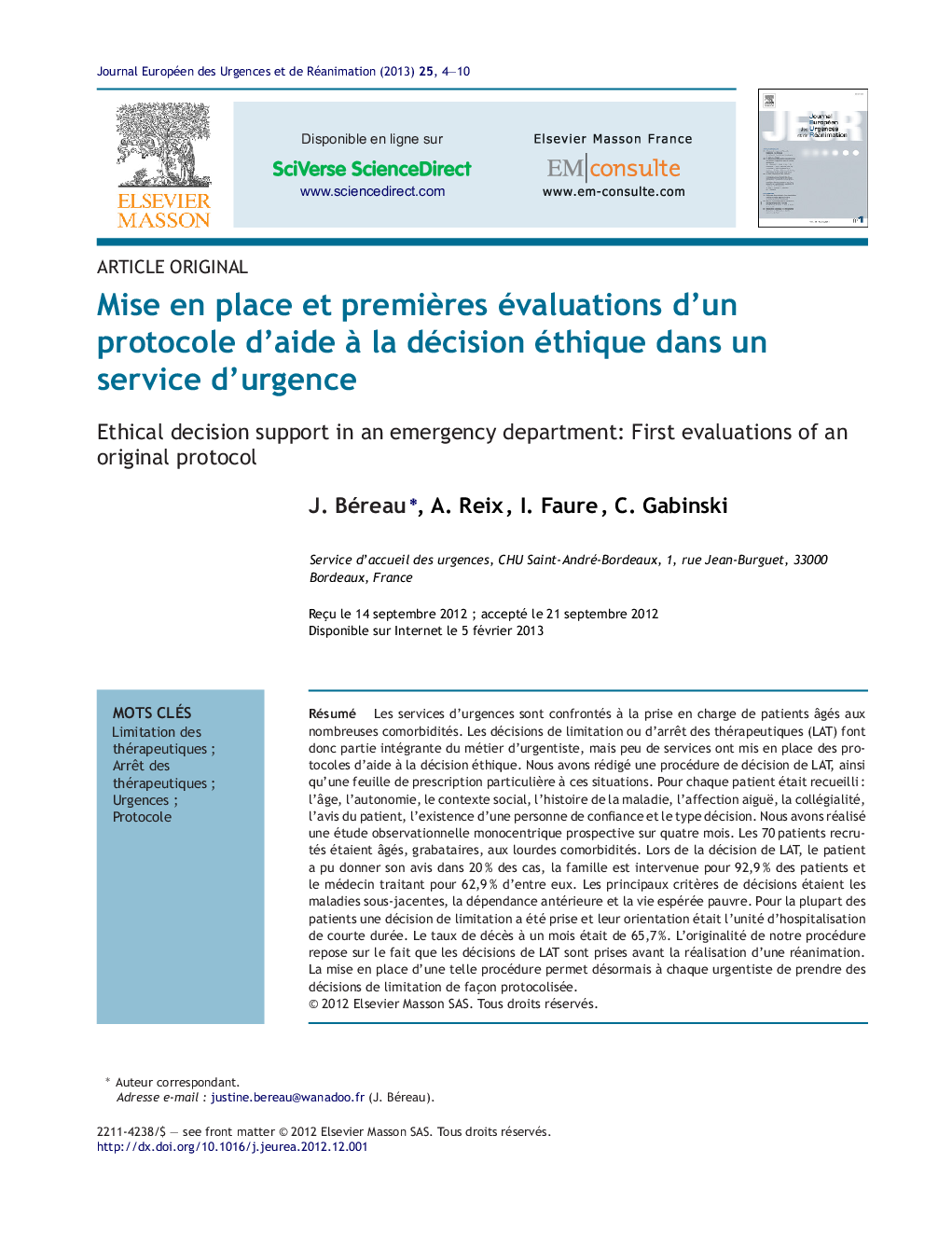| Article ID | Journal | Published Year | Pages | File Type |
|---|---|---|---|---|
| 3251487 | Journal Européen des Urgences et de Réanimation | 2013 | 7 Pages |
Abstract
Emergency departments (ED) have to cope with the care for elderly patients with many comorbidities. Decisions to limit or to stop life support are therefore an integral part of an ED physician's job but few departments have protocols to help with the ethical decision. A procedure for decisions of withholding and withdrawing life support therapies has been written as well as specific prescriptions for these cases. For each patient, the age, the autonomy, the social background, the history of their illness, the main acute medical disorder they had, the collegiality, the patients' opinions, the existence of trustworthy person and the standard decisions were collected. We have proceeded to a four-month long observational, monocentric, prospective study. The 70Â recruted patients were elderly, bedridden, with heavy comorbidities. When the decision to limit or stop life support was made, 20% of the patients were able to express their view, 92.9% of the patients' families and 62.9% of the patients' family doctors took part in the making of the decision. The main criteria of decision were underlying illnesses, earlier dependence and the poor life they could expect. For most patients, a decision to limit life support was made and they were hospitalized in a short-term-hospitalization unit. A percentage of 65.7Â of the patients died within a month. The originality of our procedure lays in the fact that these decisions are made before proceeding to resuscitation. Setting up such a procedure allows each physician to make decisions to limit or to stop life support pertaining to protocol.
Related Topics
Health Sciences
Medicine and Dentistry
Emergency Medicine
Authors
J. Béreau, A. Reix, I. Faure, C. Gabinski,
